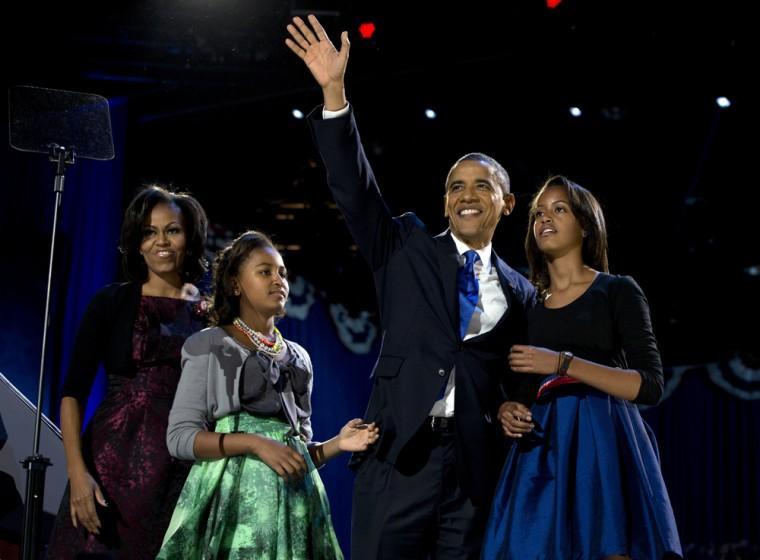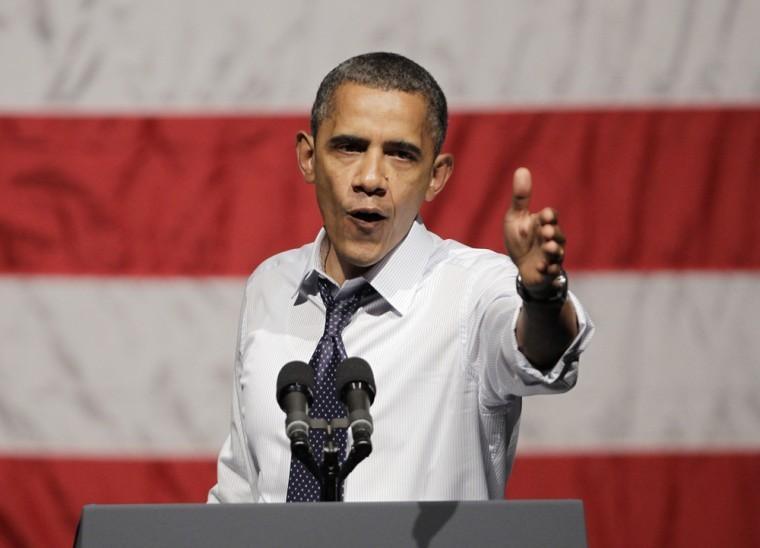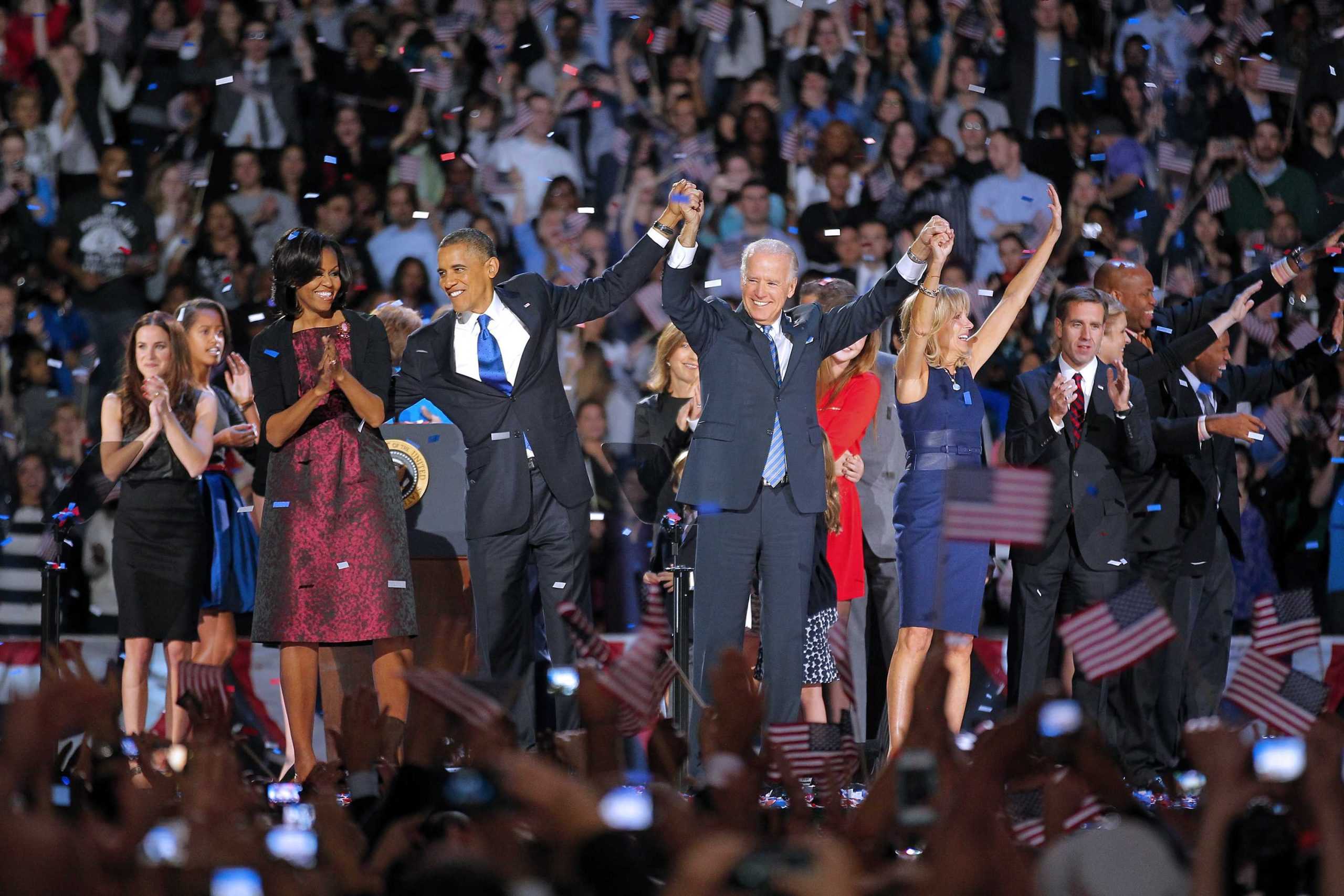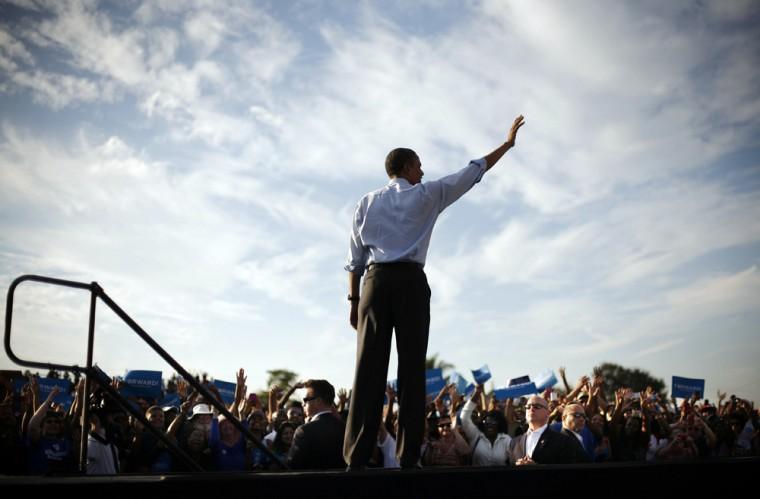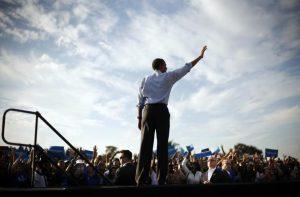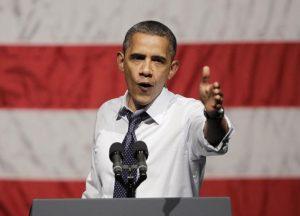President Barack Obama clinched another four years in office Tuesday night in a victory against Republican candidate Mitt Romney that saw a narrowly close popular vote.
News organizations began calling the election around 10:30 p.m. as it became clearer that Obama was pulling far ahead the 270 required Electoral College votes.
Throughout election night, the numbers in Ohio and Florida, which were labeled as the most essential swing states, were tighter by fewer than 100,000 votes.
Obama won with a large margin of Electoral College votes, but the popular vote was narrower. As of press time Tuesday night, the popular vote was locked in a dead heat.
The president was victorious his home state of Illinois by a landslide and claimed Massachusetts where Romney was formerly governor.
Leading up to election day, national polls accurately predicted how close the race would be.
Polls were tied in most major swing states including Ohio and Florida. Many analysts recalled the 2000 presidential election when Democratic hopeful Al Gore demanded a recount after former President George W. Bush narrowly pulled through.
Romney conceded in a speech to a crowd gathered in Boston, offering prayers for the president in guiding the country for another four years.
“I so wish that I had been able to fulfill your hopes and lead the nation in another direction,” Romney said.
Louisiana expectedly elected Romney, giving him nine electoral votes.
Also on the national scale, Republicans will continue to hold majority in the House while the Senate retains a Democratic majority.
THE UNIVERSITY
Many students who voted at the University Lab School affirmed the state’s preference.
“Voting for Romney has a lot to do with the economy,” said Alex Beem, petroleum engineering junior.
Beem said he was impressed by Romney’s debate performance and thought he would “care more about the U.S.”
“He has the best ideas for the country,” he said.
Obama’s first term was a let down, said William Daniel, petroleum engineering sophomore and first-time voter.
“I feel kind of let down, disappointed,” Daniel said. “I’m just looking for a change for the better.”
But the majority of Louisiana was not reflected by all University students.
Many students said they chose Obama based on social issues like women’s rights and his support of same-sex marriage.
Courtlyn Sholar, architecture sophomore, voted for Obama because of his economic stances.
“Being a student and my father recently passing, with my mother working part-time and my sister and I both attending LSU, Obama’s policies on education make it possible for me to attend school,” Sholar said.
The mood was tense and impatience mounted in the Journalism Building on Tuesday night as students watched the tight race’s results roll in.
Some were doubtful that Romney would be able to unseat Obama, but Republican students retained hope in their candidate.
Political science and economics freshman Garrett Clawson voted for Romney but said that a win was a long shot.
“It’s no 2008,” Clawson said. “Neither side has been energized like in the last election.”
THE CAMPAIGN
Obama was ahead in most polls until the first presidential debate, when he was criticized for his sluggish showing. That’s when a swing of momentum hit the Romney camp.
Obama ran on the successes he had during his first term, including passing the Affordable Care Act, handling a national recession and killing Osama bin Laden.
Romney’s chief criticisms of the president focused on a disappointing term where promises were not kept. Obama was blasted for promising to reduce an unemployment rate that has thinly dropped just recently.
The thorn in Romney’s side was a perceived lack of sympathy from many Americans. A video leaked weeks before the election showed Romney at a private fundraiser denouncing 47 percent of Americans who don’t pay federal income taxes.
Obama’s second term will officially begin on Inauguration Day, Jan. 21 in Washington, D.C.


